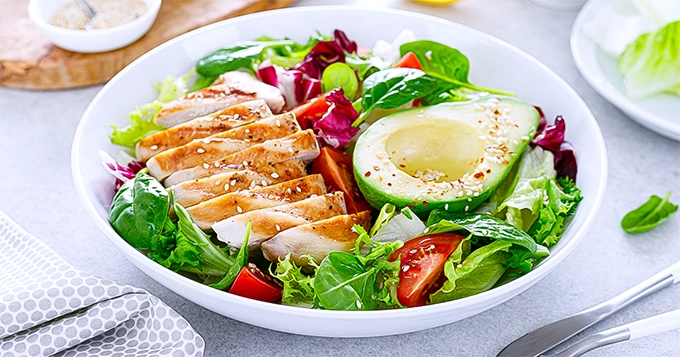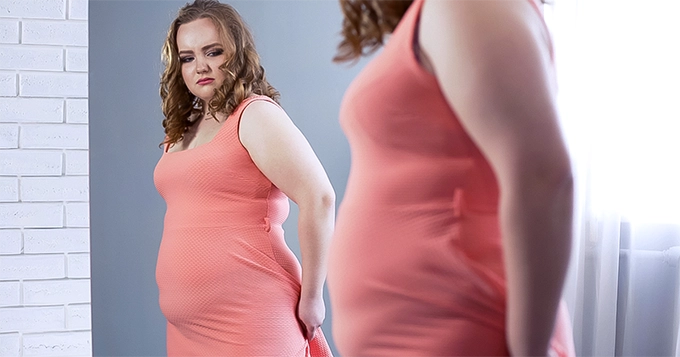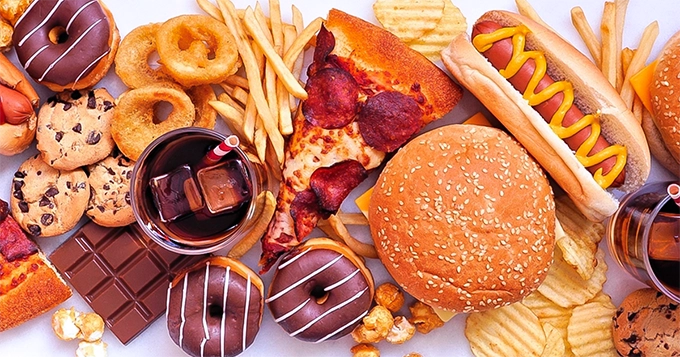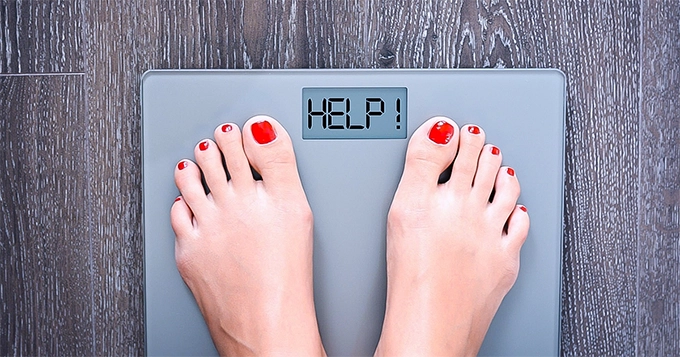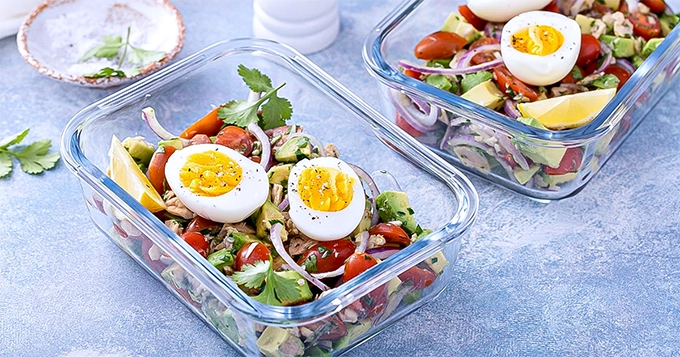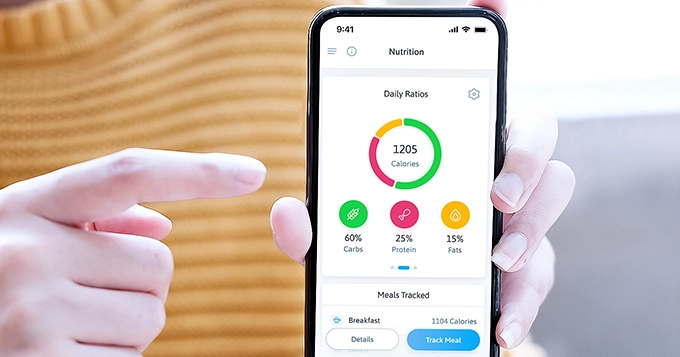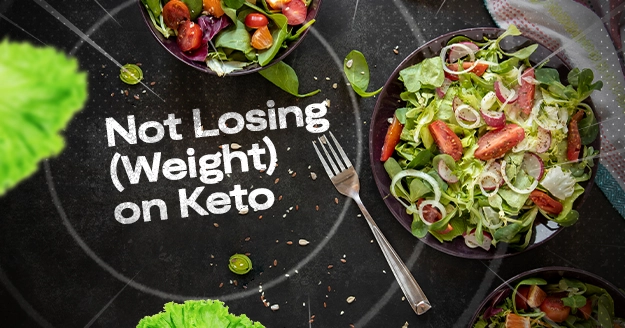Not losing weight on keto?
This article might just be the one you need to figure out why your keto diet isn’t working for you, how to break through a weight loss plateau, and tips for adjusting your keto macros.
10 Possible Reasons for Not Losing Weight on a Keto Diet
-
Your carb intake is too high
The keto diet only works by reducing your carbs from the diet. But this is easier said than done because the typical American diet is comprised of 45%-65% carbs. For example, a single banana might contain all the carbs allotted for the day on your keto diet.
-
You’re eating too many calories
Your body must adapt to using body fat, which can send signals to your body that you aren’t eating enough. A lot of people who are new to keto might compensate for their perceived hunger by over-eating on new, keto-friendly foods.
-
You’re eating nutrient-poor foods
Don’t be fooled by all the “keto” labeled foods in grocery stores, such as keto granola bars and keto cookies. Antioxidants, vitamins, and minerals are crucial to the healthy functioning of our bodies, and these processed foods contain less healthy nutrients and even more unhealthy ones.
-
You’re eating too much protein
The calories from carbs you’re removing are supposed to be replaced by healthy fats, not protein, so be mindful that you aren’t loading up on protein to compensate for your carbs. Instead, up your fat intake and see how you feel. Nutrient-dense fats make our bodies feel full and satiated.
-
You are not exercising
Regardless of any diet you’re in right now, physical activity is crucial to overall health, especially when you’re trying to lose weight.
-
You’re drinking alcohol
Achieving your fitness goals while you’re drinking alcohol on a ketogenic diet is often an impossible feat. Gin and vodka are low in carbs, but still high in calories, while beer and wine are inherently high in carbs.
-
You’re overly stressed
You can eat well and exercise regularly, but if you don’t address stress, it will negatively affect your health goals. Stress doesn’t just take a mental toll on us but can also affect us physically, raising our blood pressure, sapping our energy, preventing sleep, and making the body more prone to illness. It can even promote weight gain.
-
You have an underlying medical condition
Hypothyroidism, polycystic ovary syndrome, and Cushing’s syndrome are all diseases associated with weight gain, obesity, and the inability to lose weight. For instance, untreated hypothyroidism slows the metabolism, which makes it harder to lose weight.
-
You’re allergic/intolerant to some foods
If you frequently feel bloated or have intestinal irritation, you may have an undiagnosed allergy or intolerance to something in your diet. Consult a nutritionist or go over your diet to see what’s bothering you. The Keto diet might still work for your weight loss goals, but you might need to follow a custom keto diet.
-
You have unrealistic weight loss goals
Perhaps you believe you need to lose weight but don’t have a lot of body fat. Or maybe, you do have excess body fat, but you want it gone right away. The keto diet is not a quick fix to your weight problems. It still takes commitment and consistency.
Tips for Breaking Through a Weight Loss Plateau (on Keto)
Since you already know 10 possible reasons you’re not losing weight on keto, here are some tips for breaking through a weight loss plateau.
- Look for hidden carbs.
It’s important to evaluate your carb intake carefully. Adding a few extra grams of carbs here and there adds up quickly and may prevent you from entering ketosis.
- Try intermittent fasting.
Intermittent fasting involves eating and fasting at regular intervals or alternate periods. When combined with the keto diet, it has the potential to accelerate your transition into ketosis by shifting your body’s primary energy source from carbohydrates to fat.
- Switch up your workout routine.
Exercise helps you burn calories, resulting in a calorie deficit, which may aid in your weight loss goals. It can also help you gain muscle, live longer, and protect yourself against chronic diseases such as diabetes.
- Decrease your calorie intake.
If you find yourself stuck and unable to lose weight, you may be consuming too many calories, so track your daily calories and control your portion sizes.
- Address your stress
It is important that you try to reduce your stress levels. An increase in stress hormones might result in increased food intake and decreased energy expenditure, all of which may contribute to weight gain.
How to Calculate and Adjust Your Keto Macros for Weight Loss
Another reason you might be here reading this is that you searched for “calculate my macros keto” on your browser. Lucky for you, we have what you’re looking for.
A Keto diet consists of 55 to 75 percent fat, 15 to 35 percent protein, and less than 10 percent carbohydrates. Maintaining these macronutrient ratios helps keep insulin levels low, signaling your body to burn fat and enter ketosis.
But remember that calculating keto macros to match your needs is not that simple and can require a few tweaks. Your macro flexibility will depend on your individual physiology and health goals.
Best Keto Macro Calculator
The Trainest App can be your most reliable ally in helping you determine your ideal food intake, including total calories and macronutrients for the ketogenic diet as well as other types of low-carb diets. Tracking your food intake can make it easier to see what diet works for you and how to tailor it to your needs.
